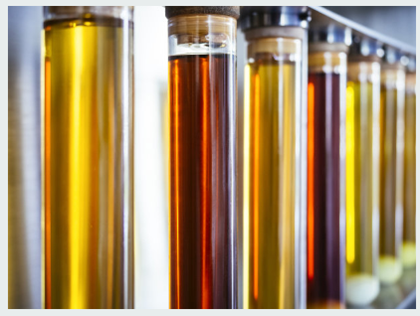Biodiesel is an alternative fuel for diesel engines that is produced by chemically reacting a vegetable oil or animal fat with an alcohol such as methanol. The process used to convert these oils to biodiesel is called transesterification. Because its primary feedstock is a vegetable oil or animal fat, biodiesel is generally considered to be renewable. Most biodiesel produced at present is produced from waste vegetable oil sourced from restaurants, chip shops, industrial food producers etc. Though oil straight from the agricultural industry represents the greatest potential source it is not being produced commercially simply because the raw oil is too expensive.

Besides renewable, another key advantage of biodiesel is improving the air quality. Diesel engines operated on biodiesel have lower emissions of carbon monoxide, unburned hydrocarbons, particulate matter, and air toxics than those operated on petroleum diesel fuel. Because carbon dioxide released from biodiesel combustion is offset by the carbon dioxide absorbed from growing soybeans or other feedstocks used to produce the fuel, which means the carbon in the oil or fat originated mostly from carbon dioxide in the air. In this regards, biodiesel is considered to contribute much less to global warming than fossil fuels. Additionally, biodiesel is safe to handle, store, and transport. It causes far less damage than petroleum diesel if spilled or released to the environment. It is safer than petroleum diesel because it is less combustible. The flashpoint for biodiesel is higher than 130°C, compared with about 52°C for petroleum diesel.
Biodiesel from oil seeds now reaches almost six billion gallons/year production capacity, with further increases depending on new feedstock development. Bio-oil and drop-in biofuels are still in the development stage, facing cost-effective conversion and upgrading challenges. Currently the U.S. bioenergy market was dominated by conventional starch ethanol production, which accounts for three-quarters of total U.S. bioenergy production. Biodiesel and biopower make up nearly all the remaining production. At Lifeasible, our biodiesel laboratory provides an extensive range of expert services in biodiesel inspection and testing services. Such as biodiesel quality control and testing, quality confirmation, trace residual, biomass testing, glycerol testing and contamination analysis. From feedstock to finished fuel, we follow all the international standards such as ASTM, IP, API, EN, ISO and offer all of the testing analysis you need. We will keep advancing the biodiesel development through involvement of our global experts in the industry technical committees.
Lifeasible has established a one-stop service platform for plants. In addition to obtaining customized solutions for plant genetic engineering, customers can also conduct follow-up analysis and research on plants through our analysis platform. The analytical services we provide include but are not limited to the following:
Get Latest Lifeasible News and Updates Directly to Your Inbox
Adaptive Evolutionary Mechanism of Plants
February 28, 2025
Unraveling Cotton Development: Insights from Multi-Omics Studies
February 27, 2025